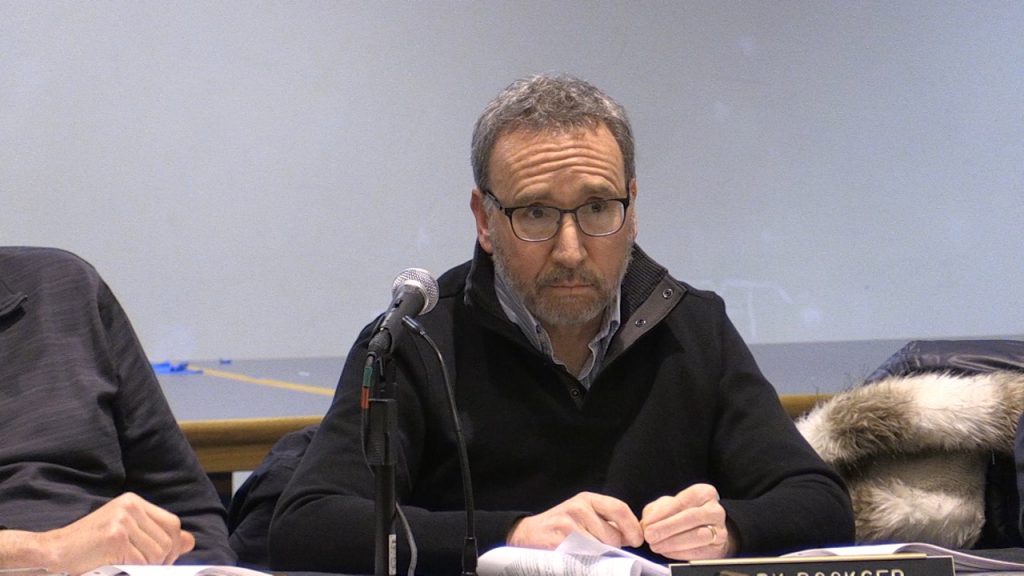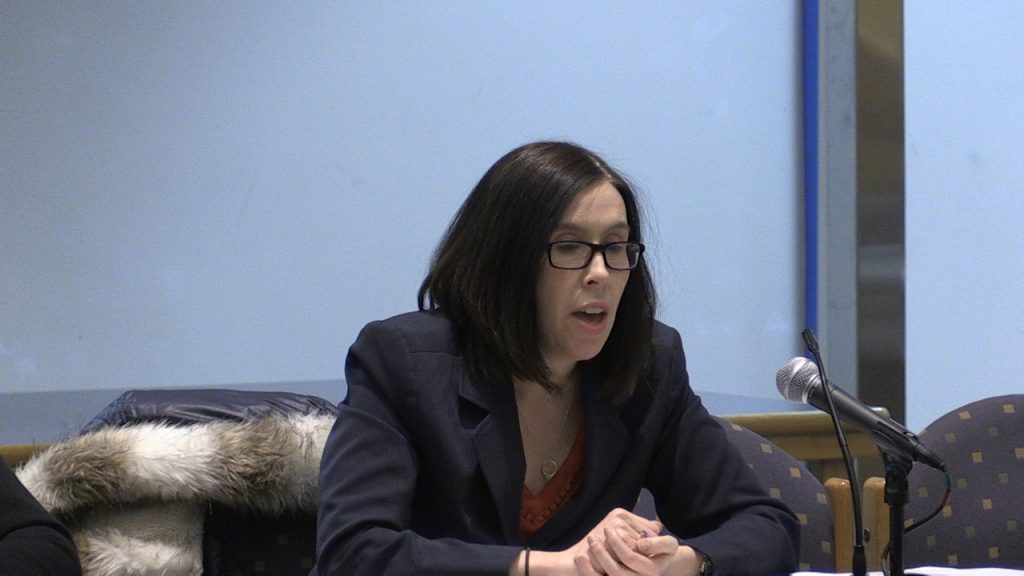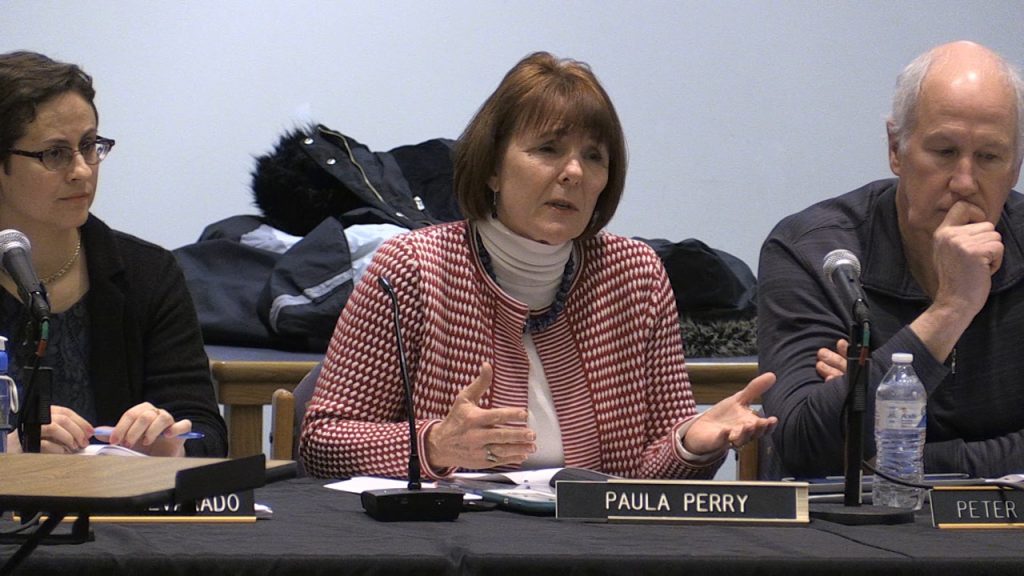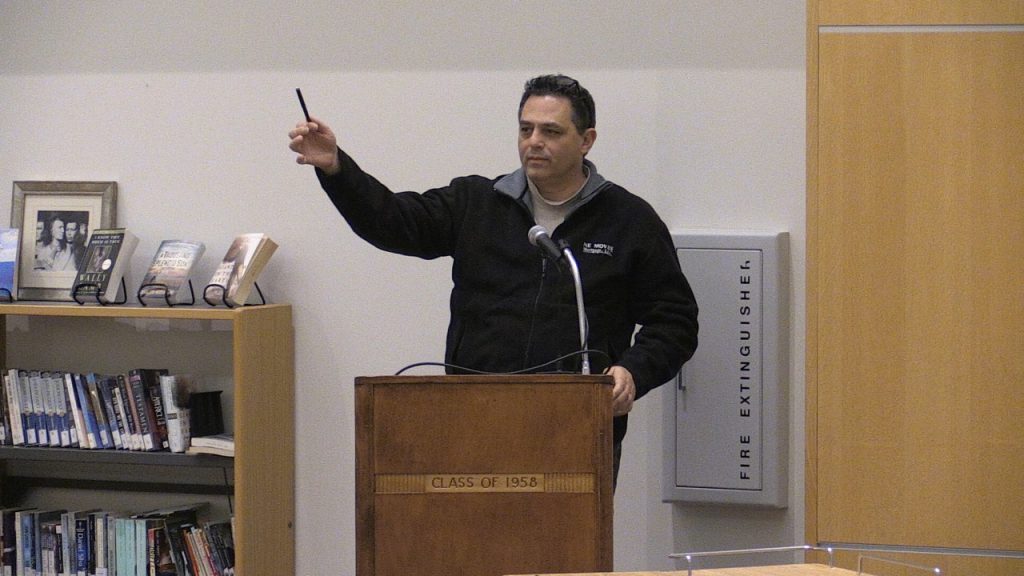 Reading, MA — The Finance Committee (FinCom) reviewed the School Committee’s Fiscal Year 2019 “balanced” budget at its February 7 meeting. FinCom members pre-submitted a series of questions to Superintendent of Schools John Doherty prior to the meeting. Doherty, School Committee Chair Chuck Robinson, and School Department Director of Finance Gail Dowd responded to each of the queries in the open meeting.
Reading, MA — The Finance Committee (FinCom) reviewed the School Committee’s Fiscal Year 2019 “balanced” budget at its February 7 meeting. FinCom members pre-submitted a series of questions to Superintendent of Schools John Doherty prior to the meeting. Doherty, School Committee Chair Chuck Robinson, and School Department Director of Finance Gail Dowd responded to each of the queries in the open meeting.

FinCom member Mark Dockser
Much discussion centered around the athletics budget and the use of revolving funds. Revolving funds are accounting tools that track income and expenses for programs with a fee attached to them. By law, the income can only be used to pay expenses for the program for which the fee was collected. Questions arose regarding the anticipated decrease in expected revenues from user fees in athletic programs, thus creating a greater impact on the budget. Doherty explained that there is an increase in the number of students receiving free and reduced lunches, and what can be charged for athletic fees is affected by the increase.

School Committee Chair Chuck Robinson
Athletic fees were increased last year, Robinson commented, and the School Committee did not want to increase them again this year. “We decided that we can no longer use gimmicks to balance the budget,” Robinson concluded. Athletic fees are used to offset most of the coaching salaries for the various sports offered at the high school. As a money-saving measure, the balanced budget does cut two non-league games per sport per level for the 2018-2019 school year.

FinCom member Anne Johnson Landry

Rebecca Liberman
FinCom member Anne Johnson Landry asked about the process regarding the proposal from School Committee member Nicholas Boivin to cut more from the athletics budget in order to retain the teachers needed to preserve the middle school foreign language program and model going forward. Robinson responded that aspects of Boivin’s proposal were new to the committee the evening they were proposed and that there was not enough time to allow affected parties to weigh in on the plan, though the School Committee did spend close to an hour and a half in discussion about the plan before rejecting it by a vote of 1-5. Resident Rebecca Liberman asked if there was a creative way to reopen the discussion, or to give the middle school language program a “float year” to see if a Proposition 2 1/2 override passes. Regarding reopening the discussions, Robinson replied: “We are living within parameters set out by charter provisions.” FinCom member

FinCom member Paula Perry
Paula Perry also commented that creativity was used to save the program last year and that last year was the requested “float year.” Perry also reminded the assembled audience that the middle school model has been held sacred to this point with the elementary and high school levels receiving the brunt of the cuts over recent years and that it would not be right to impose yet another cut on the high school.

Carl McFadden
A question was raised by resident Carl McFadden about the fact that the dividend the town received from the Reading Municipal Light Department (RMLD) only increased by $14,000 despite earnings of over $5 million. The rate of increase from RMLD is tied to the consumer price index in an agreement over twenty years ago. “Because of this, the $2.4 million dividend from RMLD has the purchasing power that $1.2 million did twenty years ago,” McFadden argued.  Selectman Barry Berman informed the FinCom that fellow selectman, Dan Ensminger, will be meeting to reopen the negotiation on that point.
Selectman Barry Berman informed the FinCom that fellow selectman, Dan Ensminger, will be meeting to reopen the negotiation on that point.
The FinCom will meet on Thursday, February 8 at 7:30 PM to review the municipal government’s FY2019 balanced budget. The meeting adjourned at 8:55 PM.
